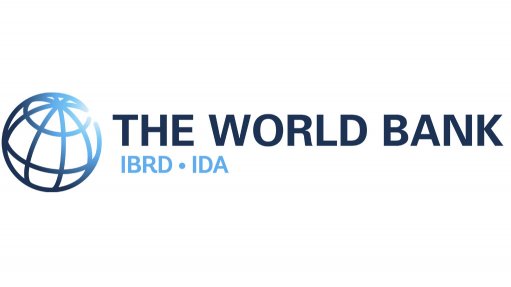Malema outlines mining and land policies in interaction with business
When the Economic Freedom Fighters (EFF) speaks of nationalising South Africa’s mines, it means that the State will own 60% of the operation, says party leader Julius Malema.
Malema says this move will not chase away investors, as some of the same mining companies that operate in South Africa have willingly ceded 51% ownership to the Botswana government.
Malema refers to Debswana, which is, however, a 50/50 joint venture between diamond miner De Beers and the Botswana government.
The difference between South Africa and Botswana is that the EFF will want to control, and not only own the asset, he says in explaining his party’s policies.
Malema accuses mining companies active in South Africa of “maximising profits at all costs”.
“We are not greedy. As long as we can make R1 and not run at a loss, we can run this mine . . . and give people a living wage.”
One way of countering nationalisation will be to offer mine workers shareholding in mining operations, Malema told the American Chamber of Commerce in Johannesburg recently.
“How can the EFF nationalise a mine if the workers own 50%?”
If workers are shareholders, they will acknowledge that their performance is linked to a dividend, leading them to work “for their bosses, as well as for themselves”.
“They will know that if they go on strike, their bonuses will not be thousands [of rands], but hundreds [of rands].”
Malema reiterates the EFF’s ambition to nationalise all land, with the State to act as sole custodian.
Nationalisation under EFF policy, however, does not include residential property.
Following the expropriation of all land, the State, as custodian, will review applications for 100-year leases, from black and white people, as well as foreign companies, to use the land in a manner that will benefit South Africa.
Malema lauds President Robert Mugabe for expropriating land from white farmers in Zimbabwe, but not the violent manner in which it was done.
Malema regards the land issue “as everything” in South Africa, with the rest “just cosmetics”.
“When will black people own land if not through aggressive State intervention?”
He says the willing-seller, willing-buyer principle requires willing sellers, of which he believes there are few on the market.
The EFF’s policy does not include the nationalisation of factories and manufacturing plants.
The nationalisation of banks as a policy statement is more centred around the creation of a State-owned bank, providing affordable loans, than targeting the existing big banks, Malema adds.
“And if you can’t compete, you must just close shop”
In answering a question of increased State involvement in the economy when considering the woeful financials of a number of State-owned entities (SoEs), he notes that private companies also fail, and at regular intervals.
“Private companies are not inherently successful.”
He regards Transnet and the Airports Company South Africa as successful SoEs.
He does, however, criticise African National Congress (ANC) cadre deployment (which then looks like “black failure”) at SoEs, which contributes to their poor financial performance.
“You need to deploy people who know what they are doing.”
Malema notes that the EFF is a proponent of a strong education system, that could be bolstered by private companies and the State providing bursaries to young South Africans to study at the best universities abroad.
He also urged no South African to leave the country, but to remain a part of what is “a robust, but not violent debate”.
“No white man will be driven into the sea. This is your home. Provide your input into how the cake can be divided to benefit everyone. We do not seek black dominance, we seek equality.”
Malema says the EFF, as the country’s third-largest political party, is working to become the official opposition following the 2019 elections, and to ultimately overtake the ruling ANC.
The EFF also hopes to capture some municipalities in next year’s local elections, “running it the EFF way”.
The party is not willing to enter into a coalition with the ANC or the current official opposition, the Democratic Alliance, to manage any municipality, he adds.
Comments
Press Office
Announcements
What's On
Subscribe to improve your user experience...
Option 1 (equivalent of R125 a month):
Receive a weekly copy of Creamer Media's Engineering News & Mining Weekly magazine
(print copy for those in South Africa and e-magazine for those outside of South Africa)
Receive daily email newsletters
Access to full search results
Access archive of magazine back copies
Access to Projects in Progress
Access to ONE Research Report of your choice in PDF format
Option 2 (equivalent of R375 a month):
All benefits from Option 1
PLUS
Access to Creamer Media's Research Channel Africa for ALL Research Reports, in PDF format, on various industrial and mining sectors
including Electricity; Water; Energy Transition; Hydrogen; Roads, Rail and Ports; Coal; Gold; Platinum; Battery Metals; etc.
Already a subscriber?
Forgotten your password?
Receive weekly copy of Creamer Media's Engineering News & Mining Weekly magazine (print copy for those in South Africa and e-magazine for those outside of South Africa)
➕
Recieve daily email newsletters
➕
Access to full search results
➕
Access archive of magazine back copies
➕
Access to Projects in Progress
➕
Access to ONE Research Report of your choice in PDF format
RESEARCH CHANNEL AFRICA
R4500 (equivalent of R375 a month)
SUBSCRIBEAll benefits from Option 1
➕
Access to Creamer Media's Research Channel Africa for ALL Research Reports on various industrial and mining sectors, in PDF format, including on:
Electricity
➕
Water
➕
Energy Transition
➕
Hydrogen
➕
Roads, Rail and Ports
➕
Coal
➕
Gold
➕
Platinum
➕
Battery Metals
➕
etc.
Receive all benefits from Option 1 or Option 2 delivered to numerous people at your company
➕
Multiple User names and Passwords for simultaneous log-ins
➕
Intranet integration access to all in your organisation


















